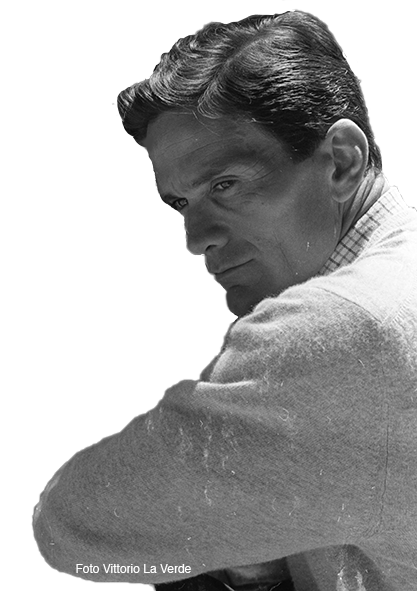
[blockquote author=”P.P. Pasolini, Il sogno del centauro. (1969 – 1975), ora in Saggi sulla politica e sulla società, Mondadori, 1999, p. 1406″ link=”” target=”_blank” ]Sono nato in una famiglia tipicamente rappresentativa della società italiana: un vero prodotto dell’incrocio… un prodotto dell’unità d’Italia. Mio padre discendeva da un’antica famiglia nobile della Romagna, mia madre, al contrario, viene da una famiglia di contadini friulani che si sono a poco a poco innalzati, col tempo, alla condizione piccolo borghese.[/blockquote] Susanna was wife of the officer Carlo Alberto Pasolini and mother of Pier Paolo (born on May 5th 1922) and the three years younger Guido Alberto. She belonged to the family of the Batistons, related to the ancient family of the Colùs (Colussi), one of the most numerous and important rural families in Casarsa. Referring to the symbiotic relationship with his mother, Pasolini said: [blockquote author=”P.P. Pasolini, Intervista a Dacia Maraini (1971), ora in Saggi sulla politica e sulla società, Mondadori, 1999, p.1673″ link=”” target=”_blank”]Mi raccontava storie, favole, me le leggeva. Mia madre era come Socrate per me. Aveva una visione del mondo certamente idealistica e idealizzata. Lei crede veramente nell′eroismo, nella carità, nella pietà, nella generosità. Io ha assorbito tutto questo in maniera quasi patologica.[/blockquote] Pier Paolo attended the second year of the primary school in Casarsa (1928-1929). First, he lived in the maternal house for quite a long period where he started to feel less the sense of uncertainties and the transfers caused by his father’s military career. In Pasolini’s work it is not difficult to recognize Casarsa and its surroundings. Pasolini got the lymph source of his inspiration from the hot summers spent in Friuli during his teenage years, when he took part to the village’s life and started to play in the local football team. He explored the countryside, captured by the traditional rural world and landscape. He was seduced by the freshness of the waters and brightness of the banks but also by the local dialect that joins together the rural communities where people lived in a modest and pastoral life. This was the poet’s first inspiration and impulse as a writer ,philosopher and linguist.



